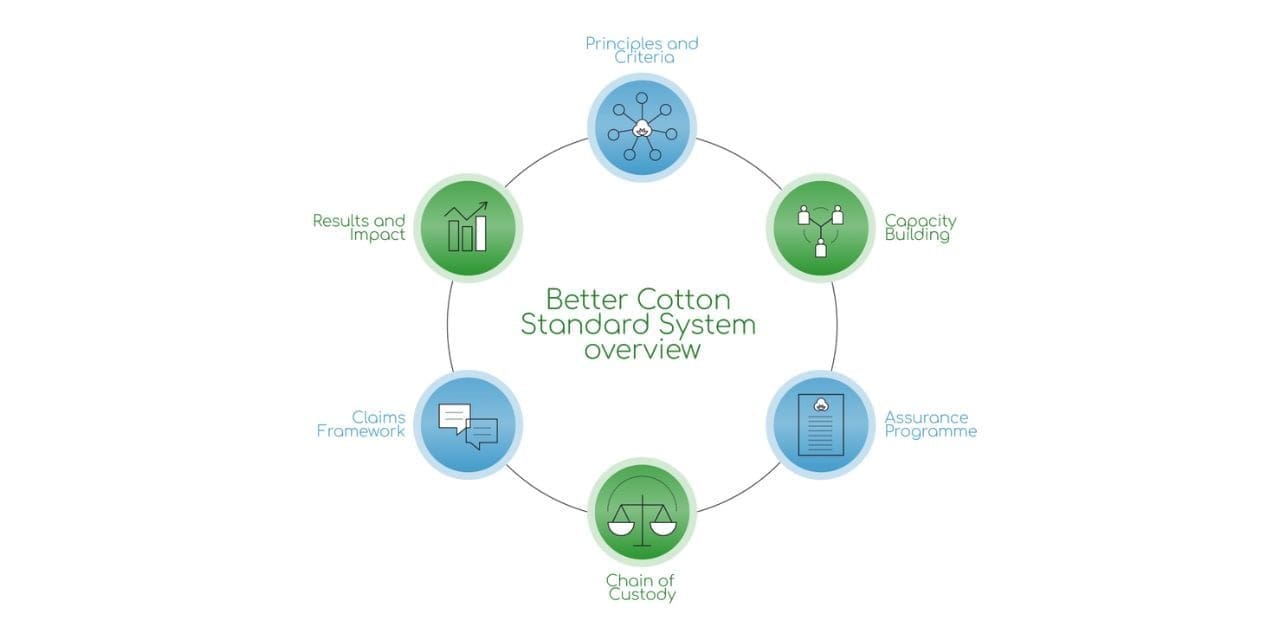20 April, London – Better Cotton, the world’s largest cotton sustainability initiative, has revised its Principles & Criteria (P&C) to ensure it remains an effective tool to drive continuous improvement and deliver sustainability impact at field-level.
The P&C define the organisation’s approach to more sustainable cotton production and establish the requirements farmers must comply with to attain a licence and sell their cotton as ‘Better Cotton’. At present, more than two million farmers worldwide – from large to smallholder operations – hold a licence.
The revised Principles cover Management, Natural Resources, Crop Protection, Fibre Quality, Decent Work, and Smallholder Livelihoods, as well as the two cross-cutting priorities of Gender Equality and Climate Change.
The latest revision was finalised in February following extensive consultations to ensure it best reflects the organisation’s latest focus areas, including its 2030 Strategy, whilst aligning with global trends towards more sustainable agricultural value chains and market regulations. Refined in compliance with the codes of good practice from ISEAL, a leading authority on sustainability standards, Version 3.0 (v.3.0) will become effective for licensing starting in the 2024/25 season.
In practice, the revised P&C will embrace a farmer-centric approach and serve as a more locally relevant standard that addresses the environmental, social and economic matters most pertinent to cotton production today. It has been reframed to plug key gaps and remove duplicative requirements, learning from previous iterations and the experiences of users.
To accelerate environmental improvements, P&C revisions will ensure the responsible use, conservation and enhancement of natural resources by championing regenerative agricultural practices, more sustainable crop protection methods and effective water use.
From a social standpoint, the revised standard will place stronger onus on driving impact and promoting wellbeing in farming communities, supported by more robust requirements surrounding Decent Work and Gender Equality, in addition to the inclusion of a new principle: Smallholder Livelihoods.
What’s more, a new subsection on climate change will offer guidance for farmers on how to best to adapt to field-level challenges and highlight the best available, region-specific measures.
Alan McClay, Chief Executive Officer, Better Cotton, said: “After an 18-month review process, we’re confident that the revised principles will help cotton growing communities continue to deliver improvements at field-level. With a practice-oriented focus, our standard strengthens requirements across both environmental and social topics, and even goes further to encompass farmer livelihoods for the first time. We’re grateful to the many stakeholders that supported this latest revision, it’s with their support that we can ensure the P&C is effective across our industry.”
Joky Francois, Lead on Gender, Rainforest Alliance, said: “I experienced the review process of the Decent Work & Gender working group as a highly participatory and constructive process with ample space to include insights and experiences from different kinds of stakeholders. This has led to revised principles that are not only clear, related to the context and practical but also in line with international standards and principles. As such, they will be a great support to cotton growers to identify and address labour and gender issues and improve working conditions and livelihood of the people involved in cotton production in a sustainable way.”

